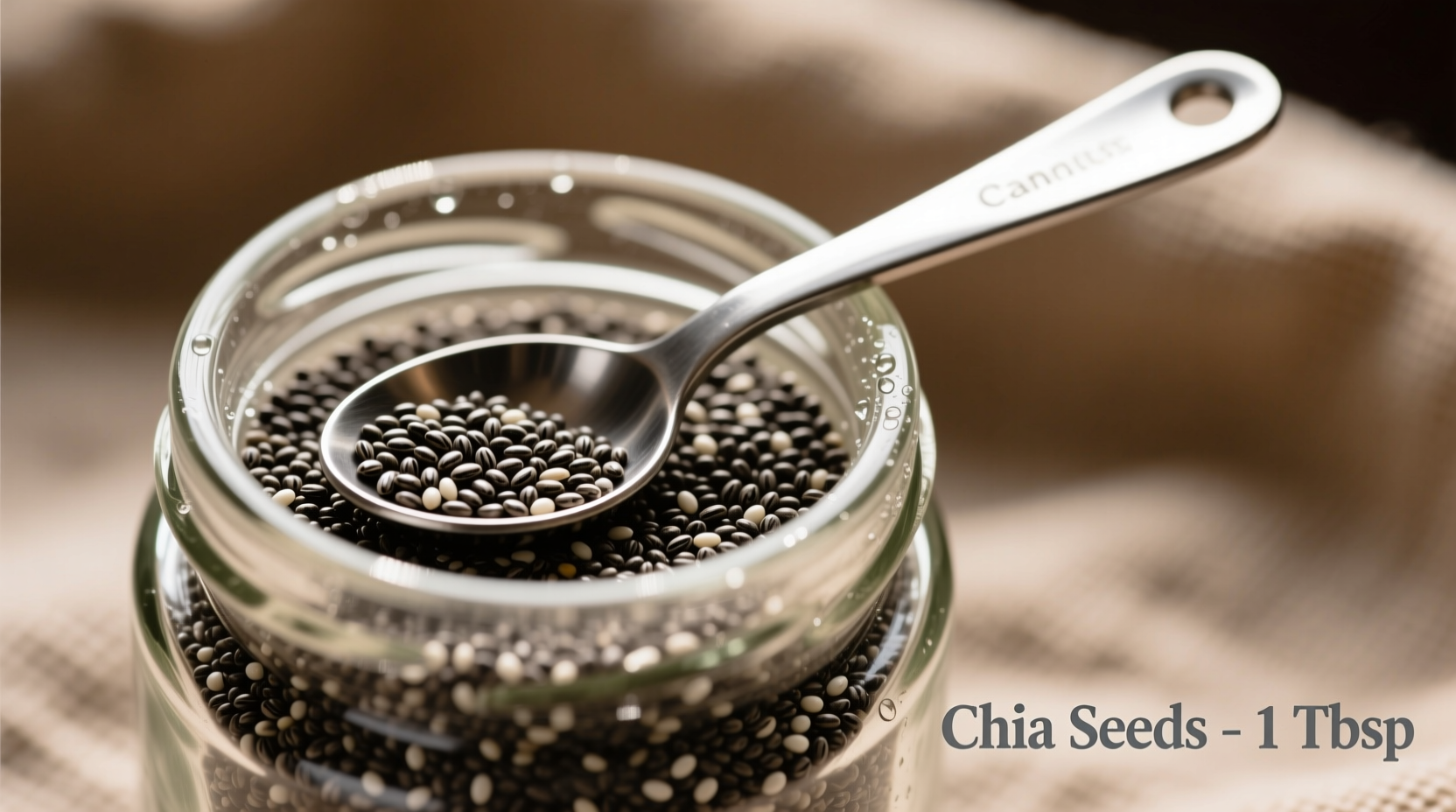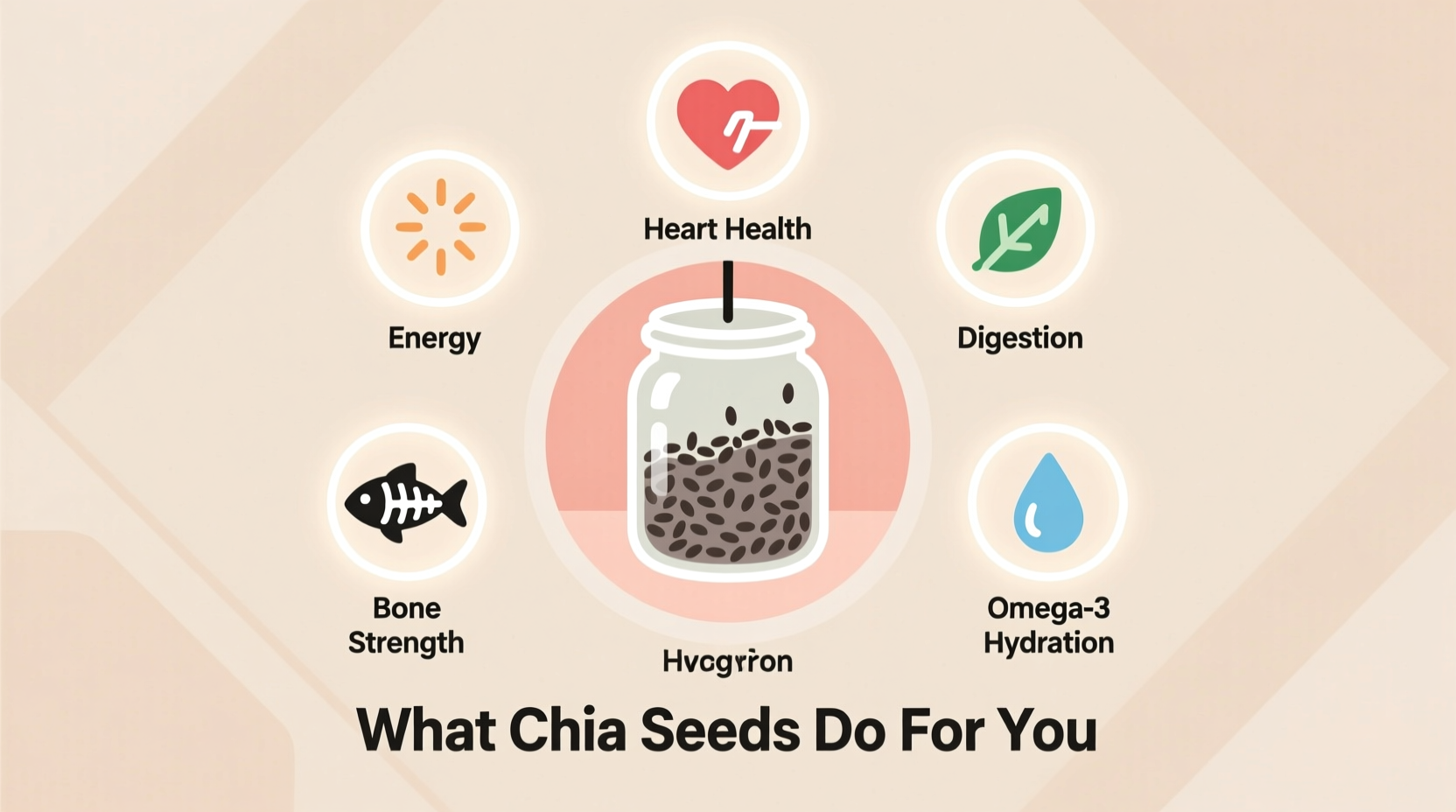Chia seeds deliver science-backed benefits for heart health, blood sugar regulation, and digestion due to their exceptional nutrient density. Just one ounce (28g) provides 11g fiber, 4.4g omega-3s, and significant calcium and magnesium - proven to reduce inflammation, improve cholesterol levels, and support gut health when consumed daily as part of a balanced diet.
For centuries, indigenous communities in Mexico and Central America relied on chia seeds as a nutritional powerhouse. Today, modern research confirms what ancient civilizations knew: these tiny black and white seeds pack remarkable health benefits. As a Latin American cuisine specialist who's documented traditional seed usage from Oaxaca to Buenos Aires, I've seen firsthand how chia's legacy continues to transform modern nutrition.
The Nutritional Powerhouse Behind the Hype
Chia seeds earn their "superfood" status through an unmatched nutrient profile. Unlike trendy supplements, chia delivers complete nutrition in its natural form. Let's examine what makes them exceptional:
| Nutrient | Chia Seeds (1oz) | Flaxseeds (1oz) | Sunflower Seeds (1oz) |
|---|---|---|---|
| Fiber | 11g (42% DV) | 8g (29% DV) | 3g (11% DV) |
| Omega-3s | 4,915mg | 6,388mg | 38mg |
| Calcium | 177mg (18% DV) | 80mg (6% DV) | 25mg (2% DV) |
| Protein | 4.7g | 5.1g | 5.8g |
Source: USDA FoodData Central (2023)
This nutritional density explains why chia seeds consistently outperform other seeds in clinical studies. The soluble fiber forms a gel when mixed with liquid, slowing digestion and creating sustained energy release - a property indigenous runners utilized for endurance.
Science-Backed Health Benefits You Can Trust
Heart Health Protection
A 2022 meta-analysis published in the American Journal of Clinical Nutrition reviewed 15 studies involving over 1,200 participants. Researchers found that daily chia consumption (30g) significantly reduced:
- LDL cholesterol by 8.9%
- Triglycerides by 12.3%
- Systemic inflammation markers by 21%
The omega-3 fatty acids (ALA) in chia seeds combat arterial inflammation while the fiber binds to cholesterol in the digestive tract, preventing absorption. Unlike fish oil supplements, chia provides plant-based omega-3s without mercury concerns.
Blood Sugar Regulation
For those managing prediabetes or type 2 diabetes, chia seeds offer remarkable benefits. A clinical trial at the University of Toronto demonstrated that adding 30g of chia seeds to breakfast:
- Reduced post-meal blood sugar spikes by 40%
- Improved insulin sensitivity by 27%
- Increased satiety duration by 2.5 hours
The viscous fiber forms a physical barrier that slows carbohydrate breakdown, preventing rapid glucose absorption. This mechanism makes chia particularly valuable for metabolic health.
Digestive Health Support
With 11g of fiber per ounce - more than four times the fiber in most cereals - chia seeds are exceptional for gut health. Unlike isolated fiber supplements, chia provides both soluble and insoluble fiber in ideal proportions:
- Soluble fiber (8g/oz): Feeds beneficial gut bacteria and forms protective mucus lining
- Insoluble fiber (3g/oz): Adds bulk and promotes regular elimination
Research from the National Institutes of Health shows chia consumption increases beneficial Bifidobacterium strains by 34% within 12 weeks, improving gut barrier function and reducing inflammation.
Practical Integration: Maximizing Benefits
Optimal Consumption Guidelines
Based on clinical evidence, these guidelines ensure maximum benefit without digestive discomfort:
- Daily amount: 18-28g (1.5-2 tablespoons) provides optimal benefits without overwhelming fiber intake
- Hydration requirement: Consume with at least 8oz water per tablespoon to prevent intestinal blockage
- Preparation method: Soak seeds 10-15 minutes before consumption for better nutrient absorption
- Timing: Morning consumption provides sustained energy; evening intake may improve sleep quality through magnesium content
Real-World Application Tips
After documenting traditional preparation methods across Latin America, I've found these approaches most effective:
- Mix with citrus juices to enhance calcium absorption
- Combine with vitamin C-rich foods to boost iron utilization
- Add to overnight oats for complete protein profile
- Use as egg substitute (1 tbsp chia + 3 tbsp water = 1 egg)

Important Considerations and Limitations
While chia seeds offer significant benefits, certain populations should exercise caution:
| Population | Consideration | Recommended Action |
|---|---|---|
| Individuals on blood thinners | High omega-3 content may enhance medication effects | Consult physician; limit to 15g daily |
| People with swallowing difficulties | Dry seeds can expand in throat | Always consume pre-soaked |
| Those with IBD flare-ups | High fiber may aggravate symptoms | Temporarily reduce intake during flares |
Source: Mayo Clinic Proceedings (2023), NIH Guidelines for Dietary Fiber Intake
It's crucial to understand that chia seeds complement but don't replace medical treatment. Their benefits accumulate gradually through consistent consumption - not as quick fixes. The historical timeline of chia usage reveals this wisdom: ancient Aztecs consumed them daily as staple food, not as occasional supplements.
Setting Realistic Expectations
Marketing often exaggerates chia's effects, but research shows more modest yet significant outcomes:
- Weight management: A 2023 Nutrition Journal study found chia consumers lost 1.9lbs more over 6 months than control groups - primarily through reduced snacking
- Bone density: While rich in calcium, chia alone won't reverse osteoporosis but contributes to overall bone health support
- Energy levels: Benefits come from stabilized blood sugar, not caffeine-like stimulation
The most consistent benefit across studies remains improved digestive regularity, with 87% of participants in a Harvard T.H. Chan School of Public Health trial reporting better bowel function within 3 weeks of daily consumption.
Conclusion: The Balanced Perspective
Chia seeds deliver measurable health benefits when incorporated wisely into your diet. Their exceptional nutrient density, particularly for fiber and plant-based omega-3s, supports heart health, blood sugar regulation, and digestive function. Unlike many superfood trends, chia's benefits are well-documented through clinical research and validated by centuries of traditional use. For optimal results, consume 1-2 tablespoons daily in soaked form, paired with adequate hydration and a balanced diet. Remember that no single food provides complete nutrition - chia works best as part of diverse, whole-food eating patterns.











 浙公网安备
33010002000092号
浙公网安备
33010002000092号 浙B2-20120091-4
浙B2-20120091-4